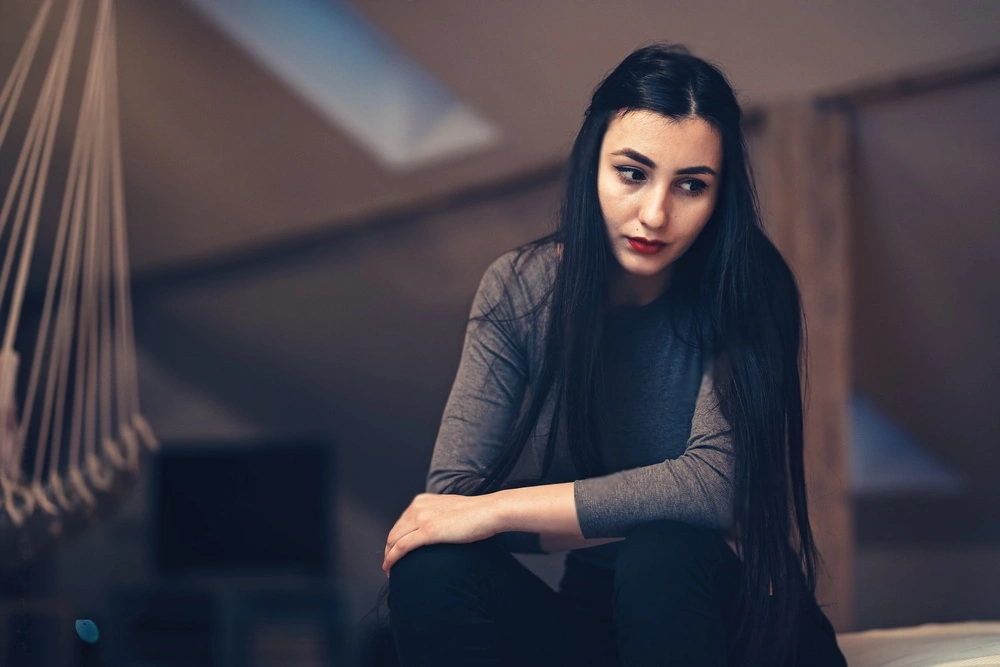Overview
Effexor, or the generic version of the drug Venlafaxine, is a medication that is commonly prescribed to individuals suffering from major depressive disorder, panic disorder, and generalized anxiety disorder (GAD). It raises brain levels of the feel-good chemicals serotonin and norepinephrine; it is an SNRI.
The anxiety-relieving effects of the medication Effexor will be covered in this blog. You will get a better understanding of the dosage, mechanism of action, drug interactions, the use for anxiety, and when to see a doctor.
Does Effexor (Venlafaxine) help with anxiety?
An increase in brain levels of neurotransmitters like serotonin and norepinephrine is the mechanism by which Venlafaxine exerts its therapeutic effects. Important functions of these chemicals include modulating emotional states and the body’s reaction to stress.
“Venlafaxine can relieve anxiety, depression, and phobias by increasing the availability of these neurotransmitters, which in turn improves general mental health.” says, Dr. Mandy Liedeman.
Venlafaxine has shown promise in treating anxiety disorders in clinical trials. As an example, a study indicated that compared to placebo, patients taking Venlafaxine had a marked improvement in their anxiety symptoms.”
Compared to other SSRIs, Venlafaxine was just as effective at managing GAD in another trial, demonstrating its dependability as a first-line treatment for this condition.
But keep in mind that it might take a few weeks for Venlafaxine to start working its magic. During this first phase, patients should take their medication exactly as prescribed and try to relax.
Furthermore, the drug’s effects, which can include dry mouth, vertigo, headache, insomnia, and erectile dysfunction, usually go away once the body gets used to it.
How to use Effexor as a treatment for anxiety?
For the treatment of anxiety disorders such as GAD, SAD, and panic disorder, Effexor (Venlafaxine) is a medication recommendation. Here is a guide on using Effexor effectively for anxiety treatment:
- Understanding Effexor
Among the many antidepressants available today, Effexor is one of the most well-known members of the SNRI family. A rise in brain serotonin and norepinephrine levels is the key to its efficacy in regulating mood and reducing anxiety.
- Patience with results
It could be a few weeks before you feel the full therapeutic benefits of Effexor. It is critical to keep taking the medication as directed, even if you don’t feel better right away.
- Monitoring side effects
Nausea, lethargy, dry mouth, perspiration, and impotence are some of the possible adverse effects of Effexor, as with any medicine. These side effects usually disappear as the body becomes used to the medication. Seek medical attention, though, if any adverse effects remain or become worse.
- Regular follow-ups
Regularly scheduled appointments with your healthcare provider are essential to monitor your progress while taking Effexor. Your doctor may adjust the dosage or treatment plan based on your response to the medication.
- Caution with discontinuation
Do not stop taking Effexor suddenly without first talking to your doctor. Withdrawal symptoms or an exacerbation of anxiety symptoms may occur with abrupt discontinuation.
Dosage of Effexor for anxiety
Effexor (Venlafaxine ) is usually prescribed according to the following dosages for anxiety disorders. For Generalized Anxiety Disorder, it is given initially 75 mg per day given as a single dose.
For panic disorder, initially, 37.5 mg per day for seven days, followed by 75 mg per day. For social anxiety disorder, the recommended starting dose is 75 mg per day, given as a single dose.
What may interact with Effexor?
There may be several interactions of the drug Effexor with other drugs, alcohol, food, and more, as listed below:
Drug Interactions
Effexor (Venlafaxine) can interact with various drugs, leading to potential complications. Some drug interactions include:
Antiplatelet drugs
Effexor may increase the risk of bleeding when taken with medications like antiplatelet drugs (e.g., clopidogrel), NSAIDs (e.g., ibuprofen), or “blood thinners” (e.g., warfarin).
Antidepressants
Avoid taking Effexor with certain antidepressants like sertraline, paroxetine, citalopram, Escitalopram, Fluoxetine, DesVenlafaxine, or Duloxetine, as it can increase the risk of serotonin syndrome.
Linezolid (Zyvox)
Avoid taking Effexor with the antibiotic linezolid (Zyvox) as it can increase the risk for serotonin syndrome.
Tramadol or Fentanyl
Taking Effexor with tramadol or fentanyl can also increase the risk of serotonin syndrome.
Other Medications
Effexor may interact with a wide range of drugs, such as Abilify, Adderall, Ativan, Cymbalta, Prozac, Xanax, and more.
Alcohol/Food Interactions
Effexor has interactions with alcohol and certain foods.
How long does Effexor take to work?
Effexor (Venlafaxine ) may take some time to show its full effects. Sleep, energy, and hunger may all show signs of improvement in the first week or two of taking Effexor. If you notice these changes, it could indicate that your body responds positively to the medication.
When you start taking Effexor for the first time, it usually takes around six to eight weeks before you start to feel better emotionally, mentally, and behaviorally. At this point, symptoms of depression should start to subside.
It is crucial to consult your healthcare provider if you do not see any improvements after eight weeks or longer of using Effexor. To relieve your depression or anxiety, they might prescribe a different medication or recommend a dosage adjustment.
It is important to continue taking Effexor as prescribed, even if you do not experience immediate changes in your symptoms. Always follow your healthcare provider’s guidance regarding using Effexor and any adjustments to your treatment plan.
When should I see a doctor?
See a doctor if you experience any of the following issues related to Effexor usage:
- Severe side effects: Immediately contact your doctor or seek emergency assistance if you encounter symptoms such as difficulty breathing, swelling of the face, lips, tongue, or throat, or signs of a serious allergic reaction.
- Persistent side effects: Consult your physician if you experience ongoing side effects like sexual dysfunction, which may persist even after stopping the medication.
- Worsening mental health: Reach out to your doctor if you notice a worsening of depressive symptoms or the emergence of suicidal thoughts.
- Withdrawal symptoms: Follow your doctor’s recommendations for tapering off Effexor, as abrupt discontinuation can result in withdrawal symptoms.
- Drug interactions: It is crucial to consult your doctor before starting any new treatment, including Effexor, because the drugs can interact with one another.
FAQs
What can be added to Effexor for anxiety?
When Effexor (Venlafaxine ) alone is insufficient for managing anxiety, options like therapy (such as CBT), lifestyle changes (exercise, diet, relaxation techniques), additional medications (benzodiazepines or SSRIs), and supplements (omega-3, magnesium, herbal remedies) can be considered as adjuncts to enhance its effectiveness in alleviating anxiety symptoms.
Can children take Effexor for anxiety?
Yes, when treating anxiety disorders such as GAD, SAD, and panic disorder in children and adolescents, Effexor (venlafaxine) is occasionally prescribed. However, there are risks associated with using Effexor in children, including an increased risk of suicidal thoughts or behaviors, so it should be used with caution.
What are the signs that Effexor is working for anxiety?
Signs that Effexor (Venlafaxine ) is effectively managing anxiety include improvements in mood, reduced feelings of worry, muscular tension, and cognitive dysfunction associated with anxiety disorders.







